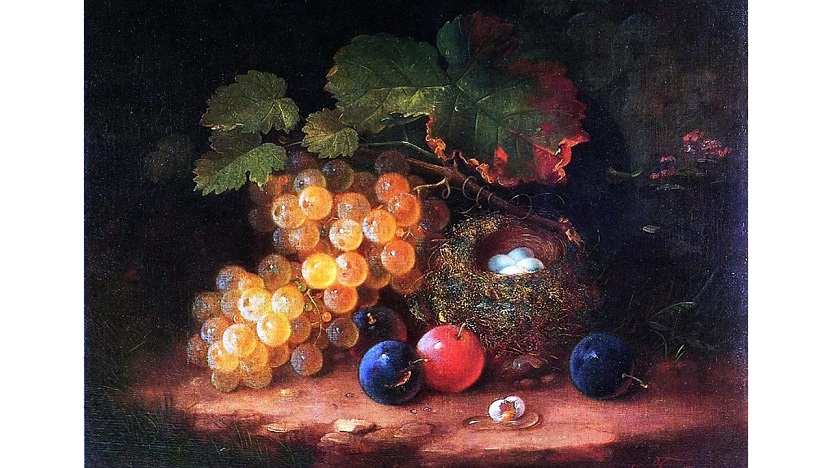.
Passer Mortuus Est, from Carmen 3
by Catullus (84-54 B.C.)| Translated from Latin by R.W. Rhodes
My baby’s favored fledgling dropped and died,
and caused us both to weep; and when we cried,
each Venus and those naked putti pouted.
The passing sparrow that had lately spouted
throbbing songs that came and made it rise,
delighted us as much as our own sighs.
For it was honey-sweet and tasted fresh
as when I’d kiss my baby’s sweeter flesh.
Nor did it move, when nested in my lap,
but jumped—alive!—when woken from its nap.
Now it shrinks along a gloomy track,
and never will return or hasten back.
My evil eye, enlarged with blackened rings
of hell, on you who shrivels lovely things:
Was love this love that perished like the sparrow,
so every night my bed is cold and narrow?
No longer cherished, all I do is weep
with swollen eyes so red I can not sleep.
.
Original Latin
Lūgēte, Ō Venerēs Cupīdinēsque,
et quantum est hominum venustiōrum:
passer mortuus est meae puellae,
passer, dēliciae meae puellae,
quem plūs illa oculīs suīs amābat.
nam mellītus erat suamque nōrat
ipsam tam bene quam puella mātrem,
nec sēsē ā gremiō illīus movēbat,
sed circumsiliēns modo hūc modo illūc
ad sōlam dominam ūsque pīpiābat.
qui nunc it per iter tenebricōsum
illūc, unde negant redīre quemquam.
at vōbīs male sit, malae tenebrae
Orcī, quae omnia bella dēvorātis:
tam bellum mihi passerem abstulistis
ō factum male! ō miselle passer!
tuā nunc operā meae puellae
flendō turgidulī rubent ocellī.
.
.
R.W. Rhodes majored in Classics as an undergraduate and went on to obtain a Ph.D. in the Study of Religion at Harvard University. He taught for almost 40 years, and has a longstanding love for Latin poetry, especially the work of Catullus, Propertius, and Tibullus.















Nothing much changes, does it? Thank yoiu for a graceful translation.
Although this translation quite freely moves lines and images, not following the original author’s syntax, it nevertheless presents a fine characterization of Catullus, and a luscious, fresh English song about the incident of the sparrow’s death. It takes meticulous work to achieve the lyric beauty evident here!
Most, if not all, of our earlier poets (and statesmen) were well-versed in Latin, and too few are today. I regret that I never studied it myself, and I appreciate those who continue the classical tradition.
I never cease to be impressed by such well written translations.
Thanks for the read, RW.